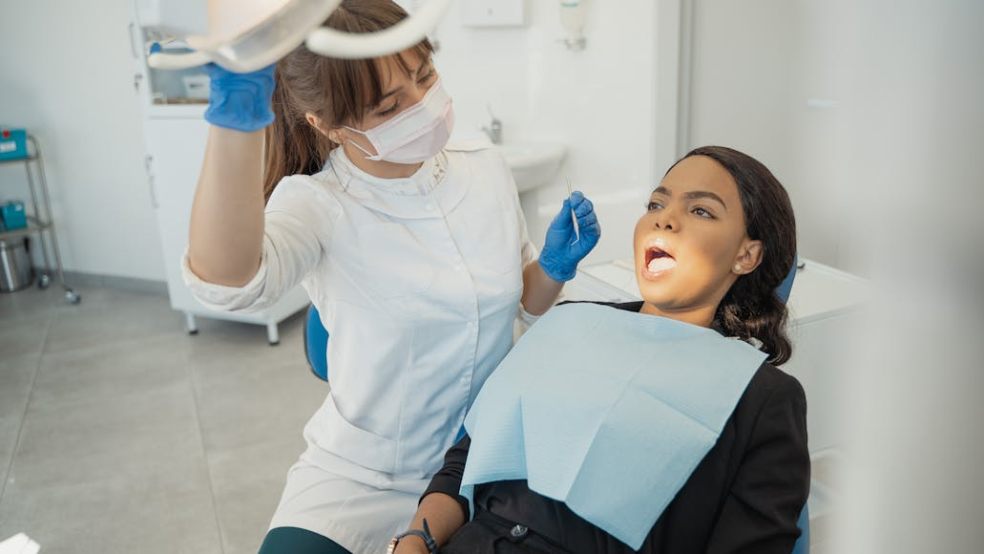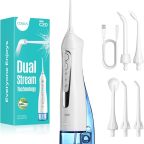
Top Tips for Handling a Dental Emergency
Dental emergencies can happen to anyone, and while a certain level of preparation is essential, managing an emergency effectively often requires a deeper understanding of the situation. If you're familiar with dental health and want to take your emergency response to the next level, these advanced tips will help you protect your oral health and prevent complications.
- Quickly Diagnose the Severity of the Situation
As someone knowledgeable about oral health, you understand that not all dental emergencies require the same level of urgency. For example, a minor chip in a molar may not demand immediate attention, while a knocked-out tooth or an abscess with swelling requires urgent intervention.
Use your expertise to quickly assess whether the issue involves pain, bleeding, or potential infection. Understanding these factors will allow you to prioritise action more effectively.
- Contact Your Dentist with Specifics
When reaching out to your dentist, providing a clear, professional-level description of the emergency can expedite care. Detail symptoms such as the intensity of pain, the extent of damage, and any swelling or discharge. Practices like Fulham Road Dental are equipped to handle emergencies efficiently, but detailed information ensures you get the best possible advice or appointment scheduling.
For after-hours care, prepare to discuss interim measures based on your knowledge of dental first aid, such as stabilising a knocked-out tooth or managing bleeding.
- Handle a Knocked-Out Tooth with Precision
If a tooth has been completely avulsed, you likely know that time is critical. Handle the tooth only by the crown to avoid damaging the periodontal ligaments on the root. Rinse it gently with saline or milk, avoiding aggressive scrubbing.
If you're confident in your ability to reinsert the tooth, gently place it back into the socket and stabilise it by biting down on gauze. If reinsertion isn’t feasible, use a tooth preservation kit or keep the tooth in milk to maintain cellular integrity until professional care is available.
- Manage Pain and Swelling Strategically
Over-the-counter medications like ibuprofen are your go-to for controlling inflammation and pain. Avoid aspirin due to its blood-thinning properties, especially if bleeding is present.
Cold compresses applied externally can reduce swelling and help manage discomfort. Ensure that cold packs are alternated on and off every 10–15 minutes to avoid tissue damage.
- Control Bleeding with Advanced Techniques
If the bleeding is excessive or prolonged, you know the importance of applying pressure effectively. Use sterilised gauze and focus on placing it directly on the source of bleeding. If gauze isn’t available, a clean, damp tea bag can serve as a substitute, thanks to the tannins’ clotting properties.
For bleeding related to a cracked or broken tooth, rinsing with warm saline solution helps to clear the area of debris and reduce bacterial load.
- Preserve Tooth Fragments and Fillings Safely
Broken pieces of tooth or a lost filling can sometimes aid your dentist in repair. Carefully collect the fragments and store them in a secure, sterile container.
To protect exposed areas temporarily, dental wax or over-the-counter temporary filling material can provide a barrier, reducing sensitivity and further damage.
- Rinse Strategically to Minimise Infection Risks
For cuts, abrasions, or wounds inside the mouth, a warm saline rinse can clean the area and provide mild antibacterial benefits. You’re likely aware of the irritation caused by alcohol-based mouthwashes, so avoid these to prevent unnecessary discomfort.
In cases of visible infection, such as swelling or pus, rinsing should be limited to avoid spreading bacteria until a professional can address the issue.
- Recognise Red Flags for Immediate Medical Attention
While many dental emergencies can be managed until professional care is available, certain situations demand immediate medical intervention. Extensive swelling that interferes with breathing, severe trauma to the jaw, or signs of systemic infection, such as fever, require emergency care at a hospital or urgent dental clinic.
As an informed individual, you know the importance of acting swiftly in these cases to prevent life-threatening complications.
Conclusion
Handling a dental emergency requires not just quick action but also informed decision-making. With your understanding of oral health, you can approach emergencies with confidence, whether it’s preserving a tooth, managing pain, or preventing further damage.













